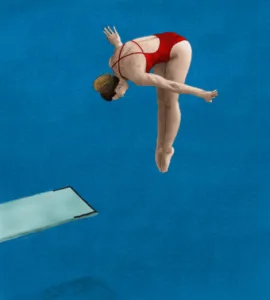The transfer viva or ‘mini viva’ is an important step in your research journey as the outcome verifies whether you can continue with your research. It usually happens at the end of your first year for full-time students, and is essentially a peer review of your research thus far to provide you with the opportunity to gain important feedback from your internal examining committee.
My understanding of the transfer viva, after attending workshops and speaking with others in my department, is that it confirms whether you have a suitable PhD topic, a solid understanding of your topic, and that your research can be completed within the given timeframe. As such, I focused on my theoretical, empirical, and practical contributions to knowledge. I ensured that I was aware of the existing knowledge within the context of my study and created a realistic GANTT chart for the remainder of my study.
To help me prepare, my supervisor set up two mock vivas which were an integral part of the process. This helped me to feel at ease when presenting my research. I was very anxious in the weeks and days coming up the transfer viva, but I was assured by many that this was normal as it meant I cared about both my research and my progress. Of course, it is natural to worry about what you might expect at the meeting. I asked myself all kinds of questions; Will the examiners ‘get’ my research? Have I done enough? What if I can’t answer a question? Imposter syndrome was hitting hard.
My presentation lasted approximately 15 minutes, I spoke about what I had done as well as what I hadn’t. For the elements of my research that I had not yet completed I outlined a realistic timeframe and the steps I needed to take to achieve my remaining objectives. Then it was time to answer the questions from my examiners who both were incredibly supportive. Essentially, I was questioned regarding elements of my transfer report that the examiners were seeking clarification on. When posed with each question, I took a few seconds to process what exactly it was the examiner was asking me before answering. It was simultaneously challenging and enjoyable to defend and justify my research development over the past year.
Overall, I actually really enjoyed the experience of the transfer viva. I felt it was essentially a formal chat with my examiners regarding my research and the milestones I had achieved. After working for so long on my project it was a relief to see the examiners as interested about my research as I am. I received great feedback from both of my examiners as well as different perspectives on my research, and I am very grateful to them for making it such a productive experience.
My advice to those preparing for their transfer viva:
1) Remember the report you have written will be the basis for your examiner’s questions.
Trust that you understand everything you have written. The best advice my supervisor gave me is that “nobody knows more about your research than you”. Whilst this may seem like an obvious thing to say, this piece of advice is something I returned to every time I started to get anxious about the process.
2) Practice your presentation but be aware that you can over prepare.
This can make you appear robotic when it comes to presenting your findings. I had practiced my presentation so many times before my mock viva which resulted in my co-supervisor informing me I was lecturing rather than presenting. This prompted me to make some changes to my slides to refresh my approach.
3) Ask your supervisor to set up a mock viva to help you prepare for the real thing.
I presented to my co-supervisor who gave me some great feedback. A week later I presented to a lecturer from the science department and received great insights from someone who did not know anything about my topic and focused on my research and methods.
4) Finally, I would advise anyone preparing for their transfer viva to enjoy the process and use it as preparation for the real viva. It is a major milestone in your research journey and a great learning experience. Good luck!










